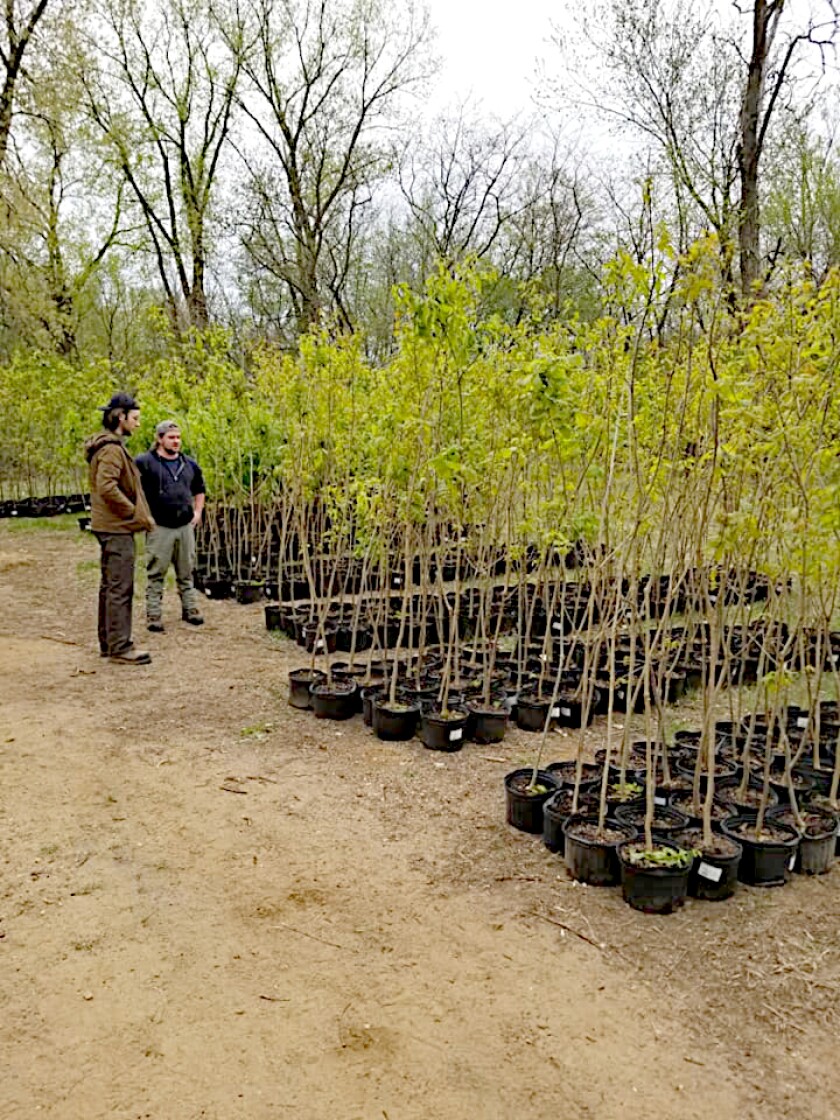Kevin Dornink found a niche in an ecosystem.
He and his brother, Nate Dietzenbach, founded Brothers Up North LLC, a Rochester-based conservation and land-management company, in late 2019.
They’re in the buckthorn business — and business is booming.
More broadly, they work to remove invasive species and plant native species to restore the ecosystems invaders upset.
In its first year, Brothers Up North planted more than 15,000 native trees throughout Southern Minnesota, removed Japanese hops from along the banks of the Root River, banished acres of mustard garlic plants, and removed more buckthorn trees than Dornink can count.
ADVERTISEMENT
“There’s always buckthorn work,” he said.
After working with the Minnesota and Iowa Conservation Corps for two years, Dornink wasn’t ready to go back to a regular day job.
Much of the work he did was removing invasive species to help restore ecosystems in Southeast Minnesota and Northeast Iowa.
One of the corps leaders suggested he could continue the outdoor work he loved as a private contractor.
For the brothers, spending time outdoors was a natural fit. They grew up on a dairy farm in Iowa.
“We were always in the woods doing stuff,” Dornink said.
Few contractors have the experience or interest in performing invasive species control work. The service is in demand at all levels of government, but few small towns and counties have the staff to dedicate to keep up with invasive plants, let alone get ahead of them.
Working with the corps gave the company a leg up in knowing where some major areas of concern are and approaching local officials with an offer to help.
ADVERTISEMENT
The COVID-19 pandemic also helped with work, Dornink said.
“A lot more people spent more time looking out their windows and looking at their land,” he said.
Being a small company also let them be flexible in their work and not get too bogged down — literally.
Other companies had struggled getting equipment to the invasive Japanese hops along the Root River. Dornink, Dietzenbach and Nikola Hamilton were able to keep their operation flexible and lightweight.
They used canoes to get to the plants while carrying only lunch, drinking water and backpack sprayers, they were mobile, and they didn’t get stuck in the shallow water of the Root River in Houston County.
“It’s a good time to be on the river,” Dornink said. “But it’s shallow, and any big equipment is going to get stuck.”
Hamilton, a Rochester musician, joined the group part time over the summer after his hours at Cafe Steam were reduced due to the pandemic. The brothers are Hamilton’s cousins, and he thought the work would be a way to make ends meet while being outdoors. By the end of the season, it meant a bit more to him, Hamilton said.
“I found that I quite enjoyed the work and it felt good to be making a positive impact on Minnesota’s ecosystems,” he said.
ADVERTISEMENT
For Dornink, the experience has been eye-opening to what a person can do to make a living and improve their environment.
“I can’t believe I wasn’t told this was a job when I was growing up,” he said.
John Molseed is a tree-hugging Minnesota transplant making his way through his state parks passport. This column is a space for stories of people doing their part (and more) to keep Minnesota green. Send questions, comments and suggestions to life@postbulletin.com .









